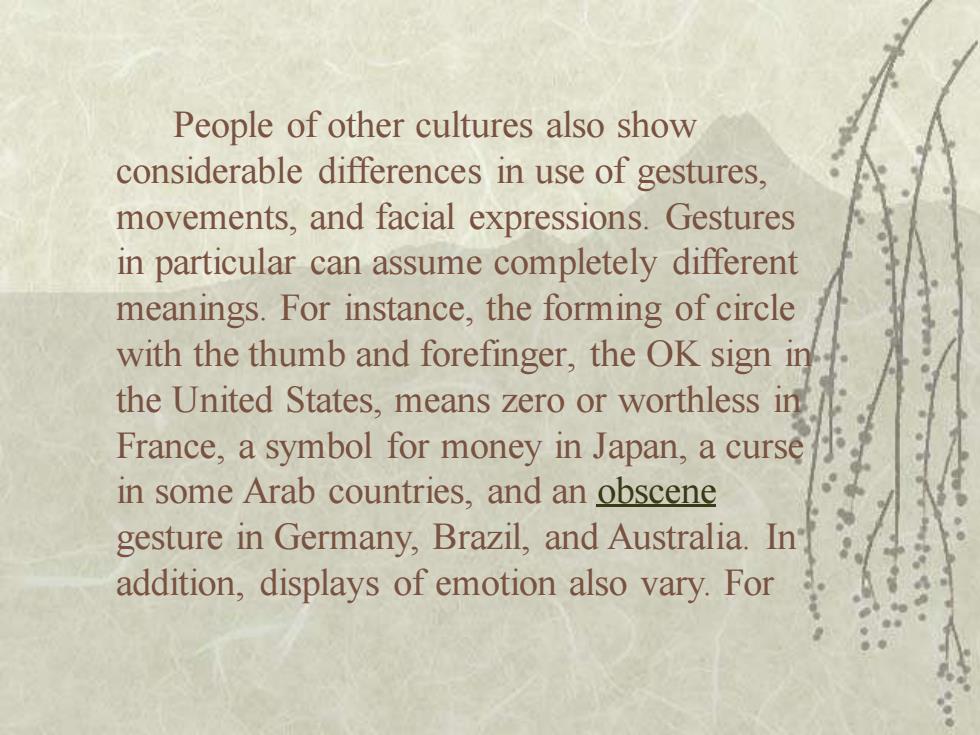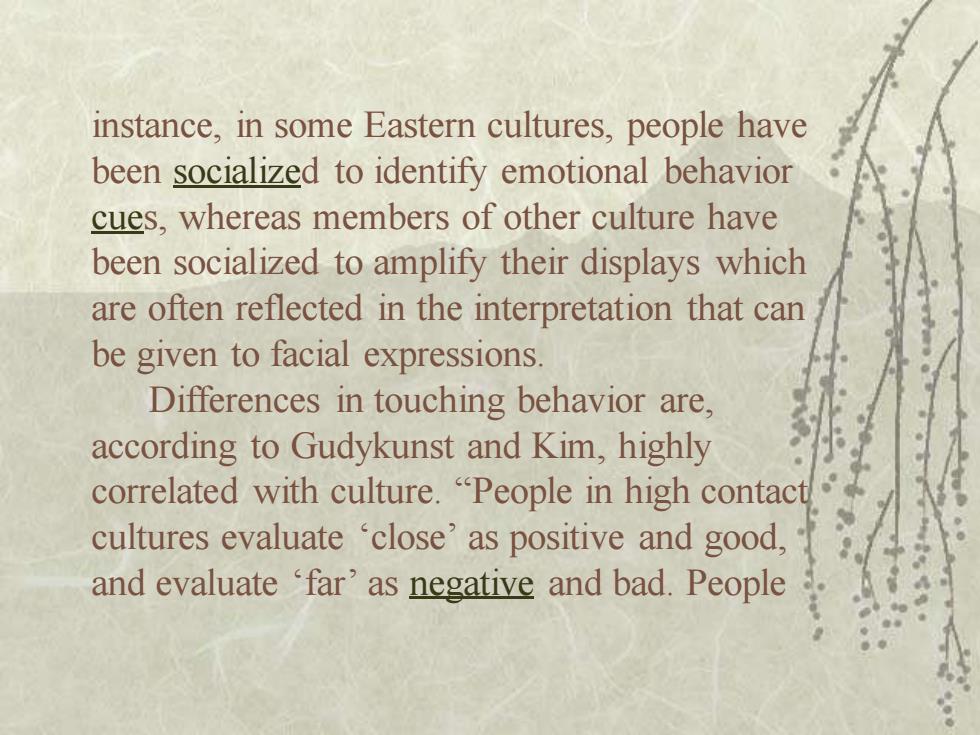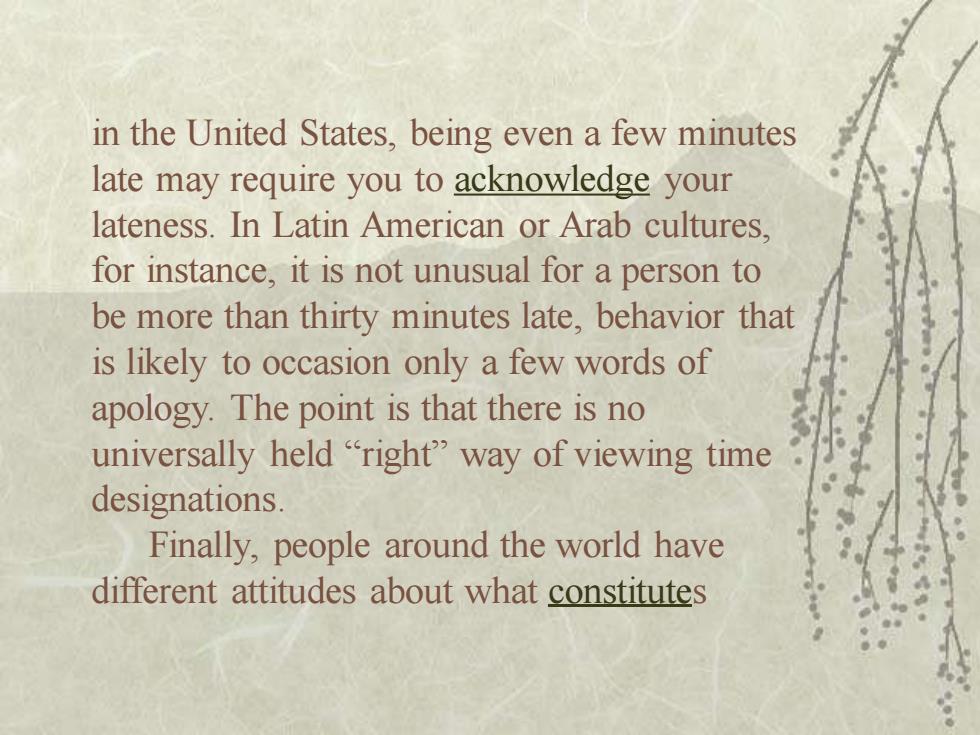
People of other cultures also show considerable differences in use of gestures, movements,and facial expressions.Gestures in particular can assume completely different meanings.For instance,the forming of circle with the thumb and forefinger,the OK sign in. the United States,means zero or worthless in France,a symbol for money in Japan,a curse in some Arab countries,and an obscene gesture in Germany,Brazil,and Australia.In addition,displays of emotion also vary.For
People of other cultures also show considerable differences in use of gestures, movements, and facial expressions. Gestures in particular can assume completely different meanings. For instance, the forming of circle with the thumb and forefinger, the OK sign in the United States, means zero or worthless in France, a symbol for money in Japan, a curse in some Arab countries, and an obscene gesture in Germany, Brazil, and Australia. In addition, displays of emotion also vary. For

instance,in some Eastern cultures,people have been socialized to identify emotional behavior cues,whereas members of other culture have been socialized to amplify their displays which are often reflected in the interpretation that can be given to facial expressions. Differences in touching behavior are, according to Gudykunst and Kim,highly correlated with culture."People in high contact cultures evaluate 'close'as positive and good, and evaluate far'as negative and bad.People
instance, in some Eastern cultures, people have been socialized to identify emotional behavior cues, whereas members of other culture have been socialized to amplify their displays which are often reflected in the interpretation that can be given to facial expressions. Differences in touching behavior are, according to Gudykunst and Kim, highly correlated with culture. “People in high contact cultures evaluate ‘close’ as positive and good, and evaluate ‘far’ as negative and bad. People

in low contact cultures evaluate 'close'as negative and bad,and far'as positive and good"Specifically,Latin America and the Mediterranean countries are high contact, the United States is moderate contact,and the Far East is low contact. A particular important area of differences concerns perception of time.In the United States we compartmentalize our time and schedules one event at a time which is exemplified by our tendency to emphasize schedules and value promptness.As a result
in low contact cultures evaluate ‘close’ as negative and bad, and ‘far’ as positive and good” Specifically, Latin America and the Mediterranean countries are high contact, the United States is moderate contact, and the Far East is low contact. A particular important area of differences concerns perception of time. In the United States we compartmentalize our time and schedules one event at a time which is exemplified by our tendency to emphasize schedules and value promptness. As a result

in the United States,being even a few minutes late may require you to acknowledge your lateness.In Latin American or Arab cultures, for instance,it is not unusual for a person to be more than thirty minutes late,behavior that is likely to occasion only a few words of apology.The point is that there is no universally held"right"way of viewing time designations. Finally,people around the world have different attitudes about what constitutes
in the United States, being even a few minutes late may require you to acknowledge your lateness. In Latin American or Arab cultures, for instance, it is not unusual for a person to be more than thirty minutes late, behavior that is likely to occasion only a few words of apology. The point is that there is no universally held “right” way of viewing time designations. Finally, people around the world have different attitudes about what constitutes